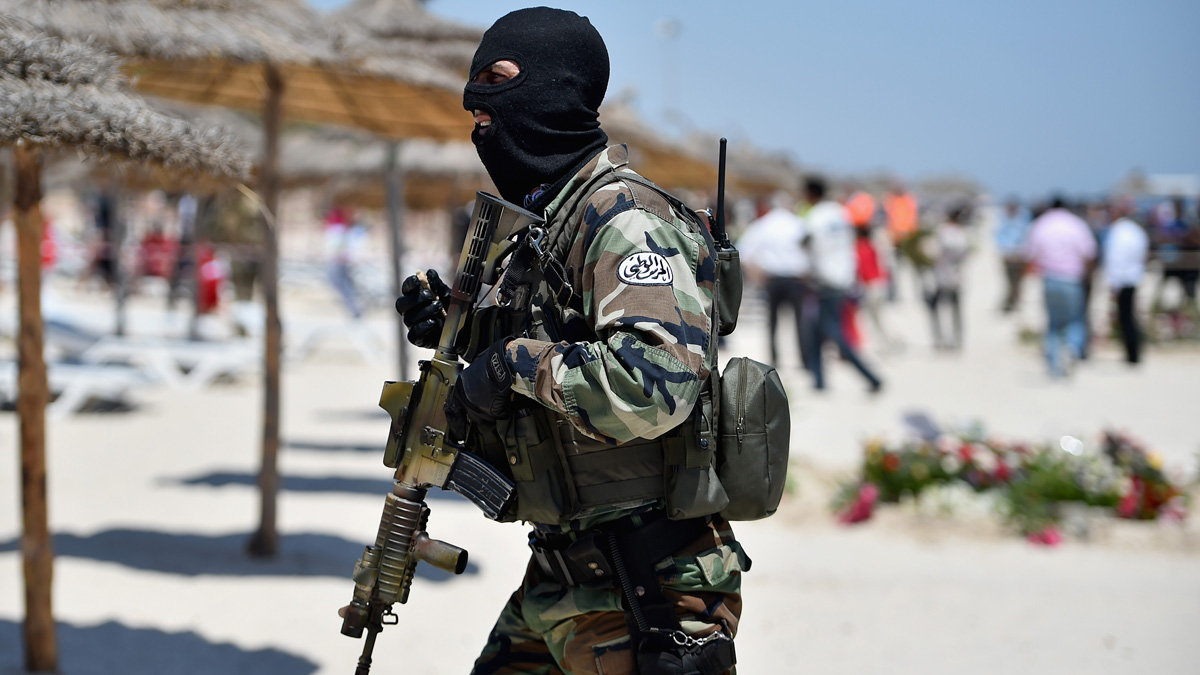Tunisia: fears grow of further attacks
A series of critical security lapses have led the West to doubt Tunisia's ability to combat terrorists

A free daily email with the biggest news stories of the day – and the best features from TheWeek.com
You are now subscribed
Your newsletter sign-up was successful
By Mourad Teyeb, Tunis
The UK government's decision to evacuate British citizens from Tunisia comes amid growing dissatisfaction with how the country's government has reacted to the terrorist threat.
Local reports have identified a number of critical security lapses and intelligence failures.
The Week
Escape your echo chamber. Get the facts behind the news, plus analysis from multiple perspectives.

Sign up for The Week's Free Newsletters
From our morning news briefing to a weekly Good News Newsletter, get the best of The Week delivered directly to your inbox.
From our morning news briefing to a weekly Good News Newsletter, get the best of The Week delivered directly to your inbox.
In 2012, the attack on the US embassy in Tunis came just a few days after the US consulate in Benghazi was assaulted. Tunisian authorities said that the attack could not have been anticipated despite demonstrations by protesters carrying Al-Qaida flags and chanting anti-western slogans just days earlier.
Ali Larayedh, Tunisia's then minister of the interior, admitted to having "failed to protect the embassy".
Another significant lapse came in 2013, when warnings sent to the interior ministry about possible threats to the life of left-wing politician Mohamed Brahmi were apparently overlooked. A leaked document appears to show that the CIA sent an urgent warning to the ministry ahead of Brahmi's assassination on 25 July 2013.
This year's attack on the Bardo Museum in central Tunis is regarded by most Tunisians as a significant security failure. The museum is only meters away from the country's parliament. In the wake of the attack, Tunisia's prime minister sacked six police chiefs.
A free daily email with the biggest news stories of the day – and the best features from TheWeek.com
British authorities now appear to doubt the Tunisian authorities' ability to investigate the Sousse attack. Shortly after Tunisian inquiries began, Britain dispatched a team from Scotland Yard to conduct an independent review of the massacre, rather than waiting for local investigators to come back with their own report.
Despite the imposition of a state of emergency in Tunisia, little appears to have changed. Last week, one Scotland Yard investigator reportedly had his suitcase stolen at the capital's main airport.
Meanwhile, resentment is growing across the country following the closure of a number of mosques.
Seven months after the election of the Nidaa Tounes party, dissatisfaction with the performance of Tunisia's president Beji Caïd Essebsi is growing not only within Tunisia, but in the West as well.
As well as being a popular British tourist destination, Tunisia plays host to several British investments in its energy sector. Political instability and the growing terrorist threat are a concern to businesses as well as holidaymakers.
As the dissatisfaction grows, protests by the so-called "Winou el pétrole?" ("where is our oil?") movement are set to resume once Ramadan is over. Concern is now growing that the demonstrations could turn violent.
-
 Health insurance: Premiums soar as ACA subsidies end
Health insurance: Premiums soar as ACA subsidies endFeature 1.4 million people have dropped coverage
-
 Anthropic: AI triggers the ‘SaaSpocalypse’
Anthropic: AI triggers the ‘SaaSpocalypse’Feature A grim reaper for software services?
-
 NIH director Bhattacharya tapped as acting CDC head
NIH director Bhattacharya tapped as acting CDC headSpeed Read Jay Bhattacharya, a critic of the CDC’s Covid-19 response, will now lead the Centers for Disease Control and Prevention
-
 Epstein files topple law CEO, roil UK government
Epstein files topple law CEO, roil UK governmentSpeed Read Peter Mandelson, Britain’s former ambassador to the US, is caught up in the scandal
-
 Iran and US prepare to meet after skirmishes
Iran and US prepare to meet after skirmishesSpeed Read The incident comes amid heightened tensions in the Middle East
-
 Israel retrieves final hostage’s body from Gaza
Israel retrieves final hostage’s body from GazaSpeed Read The 24-year-old police officer was killed during the initial Hamas attack
-
 China’s Xi targets top general in growing purge
China’s Xi targets top general in growing purgeSpeed Read Zhang Youxia is being investigated over ‘grave violations’ of the law
-
 Panama and Canada are negotiating over a crucial copper mine
Panama and Canada are negotiating over a crucial copper mineIn the Spotlight Panama is set to make a final decision on the mine this summer
-
 Why Greenland’s natural resources are nearly impossible to mine
Why Greenland’s natural resources are nearly impossible to mineThe Explainer The country’s natural landscape makes the task extremely difficult
-
 Iran cuts internet as protests escalate
Iran cuts internet as protests escalateSpeed Reada Government buildings across the country have been set on fire
-
 US nabs ‘shadow’ tanker claimed by Russia
US nabs ‘shadow’ tanker claimed by RussiaSpeed Read The ship was one of two vessels seized by the US military